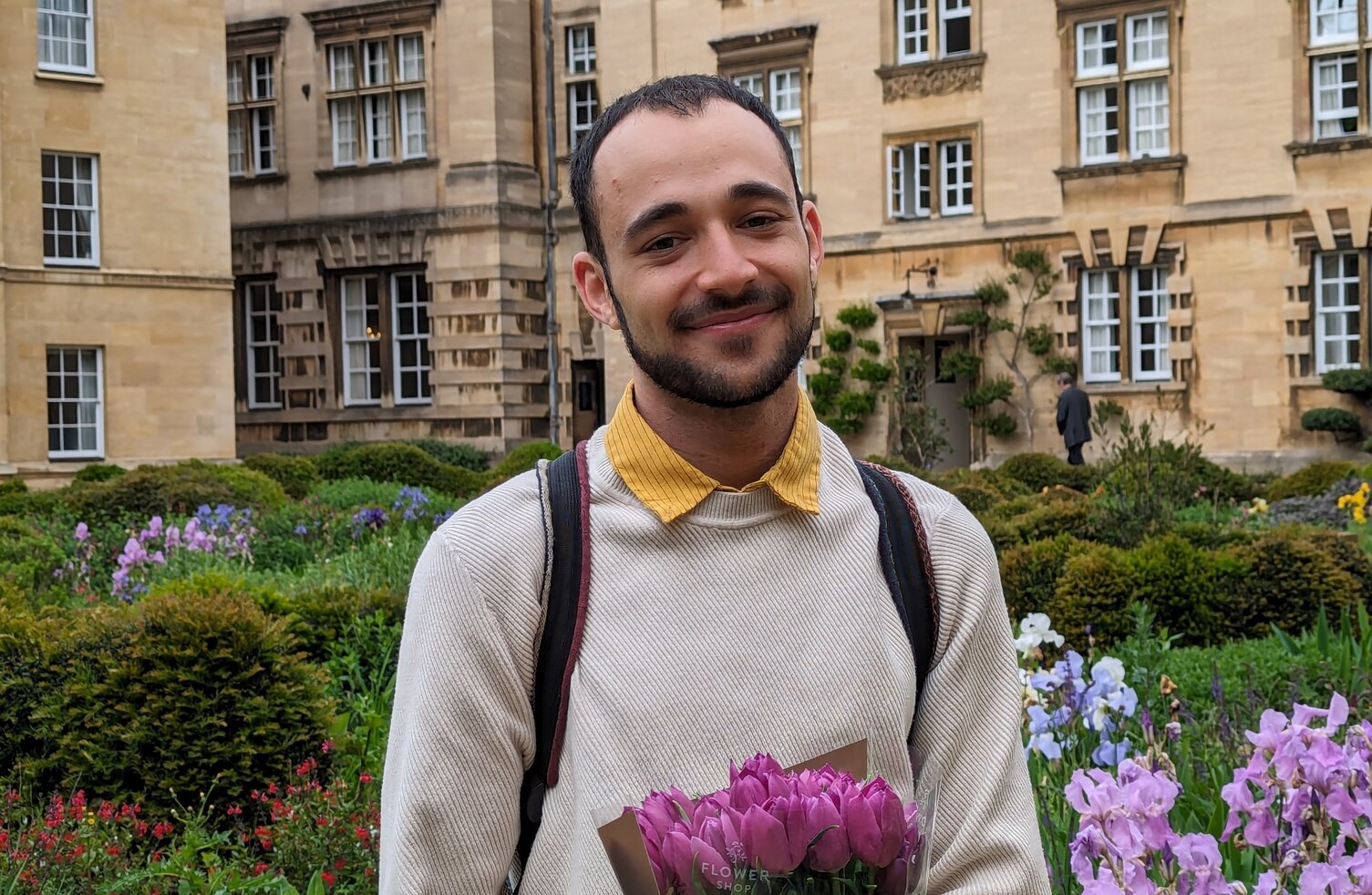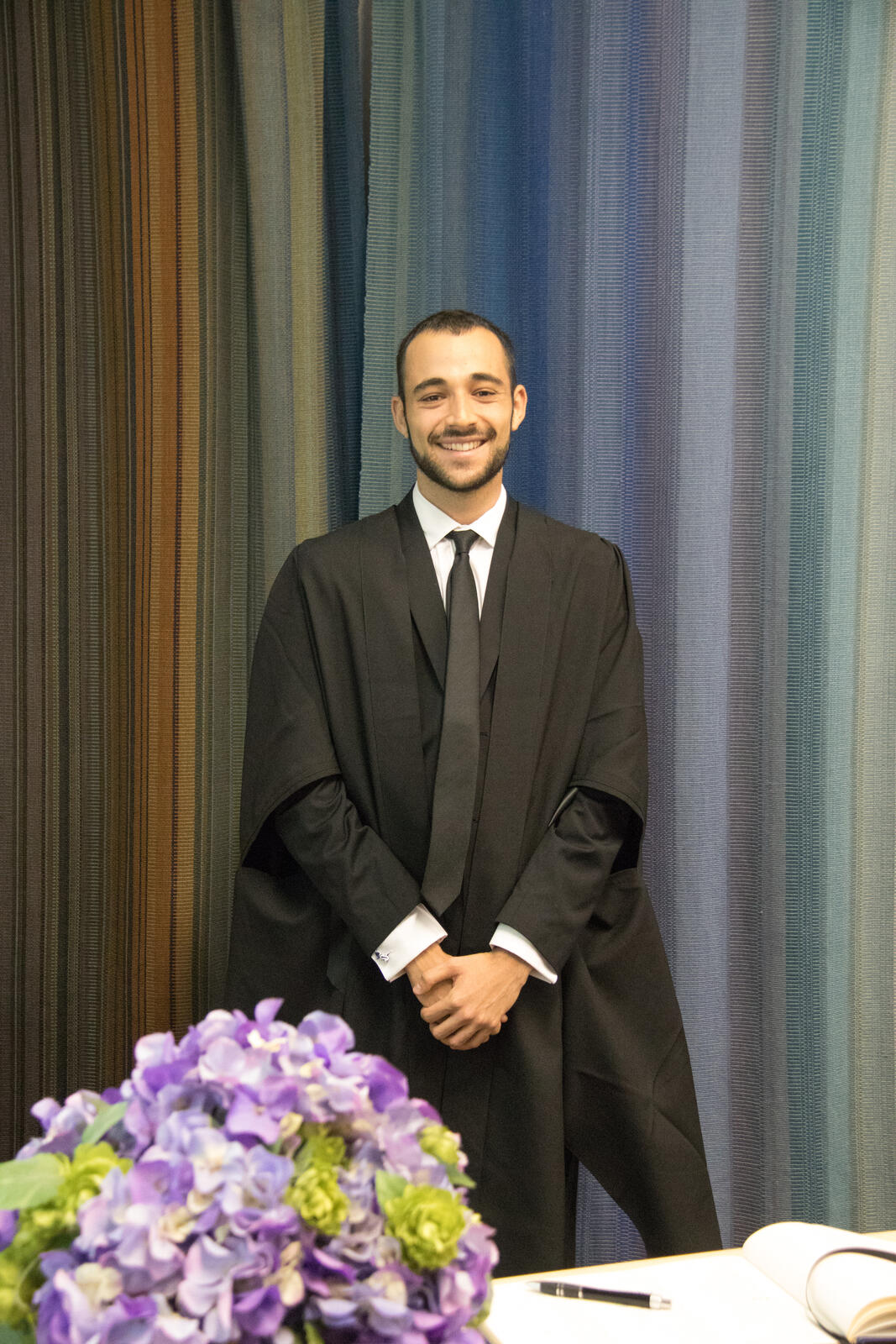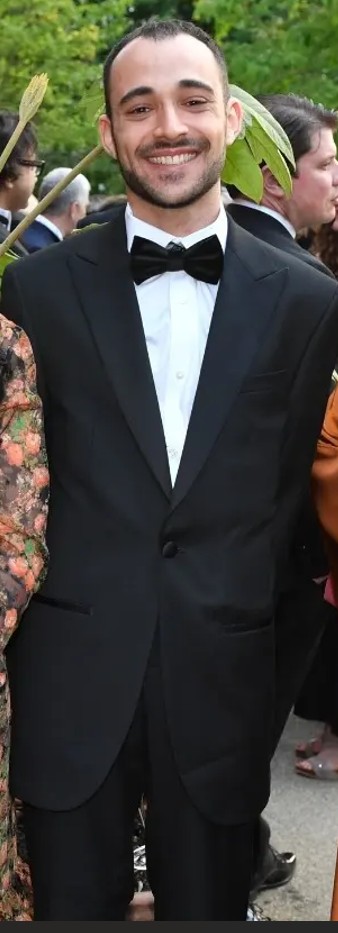
Noam Perl Treves' PhD will aim to understand how communities of faith coexist under decentralised systems of government and to identify new pathways to Muslim-Jewish coexistence.
The Yemeni tribal sphere in the 20th century was home to some of the most extraordinarily harmonious relationships between Muslims and Jews in the world at that time.
Noam Perl Treves
Noam Perl Treves’ PhD will explore Muslim-Jewish relations in 20th century Yemen, focusing on the country’s rural regions.
The history of Yemeni Jews has been shaped by tribality, geographical dispersion and weak communal and political institutions. Noam’s research will aim to understand how communities of faith coexist under decentralised systems of government and to identify new pathways to Muslim-Jewish coexistence.
Noam grew up in Rehovot, Israel, a city that became home to many Jewish Yemeni immigrants in the 20th century. He got interested in the history of Yemeni Jews in 2022 when taking a module on Muslim-Jewish relations during an exchange year at University College London. Noam noticed that, despite the high visibility of Yemeni Jews in Israel’s cultural sphere, scholarship about the community was scarce. Moreover, the academic literature that did exist leaned towards one-sided historiographical tendencies when it came to Muslim-Jewish relations in Yemen, with an overfocus on periods of conflict and persecution.
Noam explains that a major flaw in the scholarship to date is an overemphasis on the history of the Jewish community of San’aa, the capital. In fact, over 80% of the country’s Jewry lived in the countryside. “The Yemeni tribal sphere in the 20th century was home to some of the most extraordinarily harmonious relationships between Muslims and Jews in the world at that time,” he says. “For instance, in periods of drought Muslim sheikhs would ask the Jewish congregation to pray for rainfall. In general, memoirs written by rural Yemeni Jews bespeak of inter-religious respect and reverence”.
Noam’s research will draw on an endangered collection of recorded interviews with over 1,200 Yemeni Jewish elders, conducted since the 1980s. As part of his PhD project, he will spearhead the archive’s digitisation and cataloguing process to improve the accessibility of these important yet underexplored histories.
Childhood and beyond
 Noam [2025] was born in Rehovot in central Israel, the son of two scientists. His mother, who is from the Alsace-Lorraine region of France, met his father while doing her PhD in Biochemistry in Israel. Although he grew up with scientific parents and siblings and he took Biology at A-Level, Noam’s main interest was in the humanities.
Noam [2025] was born in Rehovot in central Israel, the son of two scientists. His mother, who is from the Alsace-Lorraine region of France, met his father while doing her PhD in Biochemistry in Israel. Although he grew up with scientific parents and siblings and he took Biology at A-Level, Noam’s main interest was in the humanities.
At school, he developed a keen interest in languages, literature and history. As well as Talmudic studies, Noam studied Arabic and spoke French as well as Hebrew at home.
Outside of his school life, Noam’s greatest passion was music. He began to play the piano at the age of seven and, some years later, joined a youth choir as a treble. He continued his involvement with the choral world ever since, and, over the last year, has sung professionally with two chamber ensembles as a tenor. He will be rejoining Christ’s College Chapel Choir where he sang during his master’s at Cambridge.
An enthusiast of Renaissance and Baroque music, he looks forward to contributing to the musical scene at Christ’s. Noam says: “Our college chapel is unique in that it highlights the importance of inter-religious dialogues and welcomes students of all faiths to partake in the college’s spiritual life. It’s a very interesting space for someone interested in how members of different sites engage in interactions that exceed utilitarian purposes.”
Undergraduate studies
 By the end of secondary school, Noam was leaning more towards a career in diplomacy or development-related NGOs.
By the end of secondary school, Noam was leaning more towards a career in diplomacy or development-related NGOs.
He enrolled at Sciences Po Paris, one of the world’s top universities for international relations and political science. Following the African Studies track, he was able to take a wide variety of subjects from law and history to gender studies and went on an exchange year to UCL.
Noam’s final dissertation, awarded a distinction, explored how the disintegration of the French colonial empire in North Africa has been affecting Muslim-Jewish relations with France since the second half of the 20th century.
He had also undertaken internships in NGOs in Israel, including a centre for asylum seekers in Tel Aviv where he helped to set up a food bank, and at EcoPeace Middle East, an organisation bringing together Jordanian, Palestinian and Israeli educators, activists and leaders through ecology.
Postgraduate studies
In 2023, Noam moved away from the development world, about which he had many ethical questions, and embarked on a master’s course in Middle Eastern Studies at Cambridge, taught in collaboration with the Woolf Institute. His master’s dissertation focused on how Yemeni Jews dealt with their Arabicised heritage following immigration to Palestine in the 20th century.
In 2024, Noam took a gap year during which he worked at the Van Leer Jerusalem Institute which promotes inclusive democracy and better relations between Jews and Palestinian Arabs and has been highly critical of the current war.
He is very excited to be offered the Gates Cambridge Scholarship, as it will provides him the opportunity to not only contribute to the field of Middle Eastern Studies, but also to advance our understanding of how intergroup peace can be nurtured around the world.












